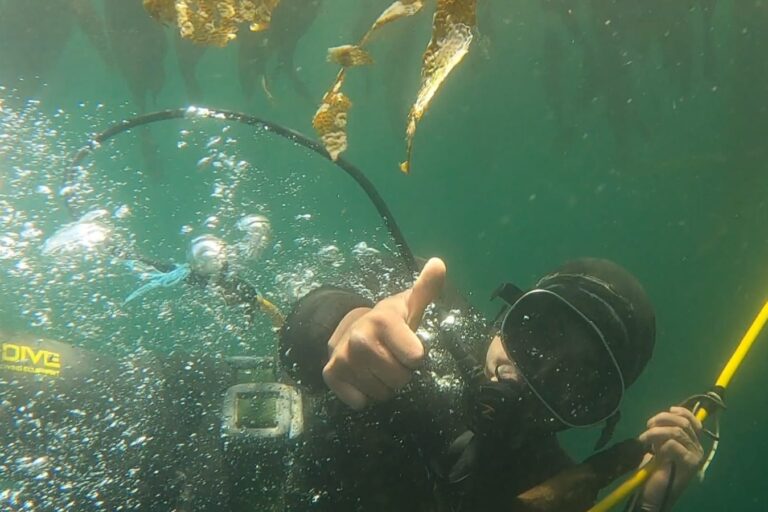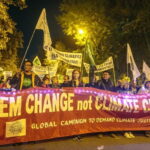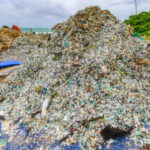Daniel Caniullán has been diving in the cold waters of the Guaitecas Archipelago in northern Patagonia, Chile, for more than 30 years. “Just by looking at the seabed landscape, you can tell what species you are going to find,” he says. Just as it is possible to recognize the loss of a diverse forest on land, Caniullán’s experience underwater allows him to quickly identify damaged areas. To undo the damage, local divers “repair or reorganize the seabed to restore biodiversity and interspecies relationships,” according to a recent paper published in the British Ecological Society. Calm waters at Melinka pier in the Guaitecas archipelago. Image by Daniel Caniullán. “It is a very practical example to understand how knowledge passed down from generation to generation can be used to recover certain areas and face current challenges such as the devastation of the underwater substrate,” says Florencia Diestre, anthropologist and co-author of the paper, with the Austral University of Chile. Caniullán is a lonko, the Mapudungún word for leader, of the Mapuche-Williche-Lafkenche Pu Wapi Indigenous community in the town of Melinka on Ascensión Island. This territory is a 15-hour boat ride from the nearest town and more than 1,000 kilometers (620 miles) away from Santiago city. But distance was no obstacle in the 1980s when the “loco (Concholepas concholepas) [shellfish] fever” broke out, says Jaime Ojeda, co-author of the study and a marine biologist at Cabo de Hornos International Center at Chile’s University of Magallanes. Nor was it an obstacle to the arrival…This article was originally published on Mongabay
Search
Recent Research
Want your Blog Article featured on our website?
Research
Featured News
How to Make Your Home More Energy-Efficient in 2026
A practical, future-ready guide for lower bills and a smaller footprint Rising energy prices and
Sustainable Break Rooms: Greening the Office Pantry
Photo by Rodeo Project Management Software on Unsplash A break room may seem like a
Solar-powered AI streetlights to fund coastal highway construction
Nigeria’s long delayed Lagos-Calabar Coastal Highway is set to be rescued by thousands of AI-driven,
Big Data Analytics Enhances Renewable Energy sector
The sun doesn’t send bills, but energy companies using renewable energy do. And to keep
From COP30 to Sri Lanka, indigenous voices shape climate & food sovereignty
COLOMBO — When Indigenous groups converged at the entrance of the U.N. Climate Change Conference
Another threat to reefs: Microplastic chemicals may harm coral reproduction
As the sliver of a new moon shines over Kāneʻohe Bay, Oʻahu, millions of tiny
A Practical Guide to Choosing the Right Organizer Bins Online
Choosing organizer bins sounds simple — until you start comparing sizes, materials, and specs online.
How Lagos traders struggle as styrofoam gradually disappears in markets
Traders have continued to count their losses about five months after the Lagos State Government





